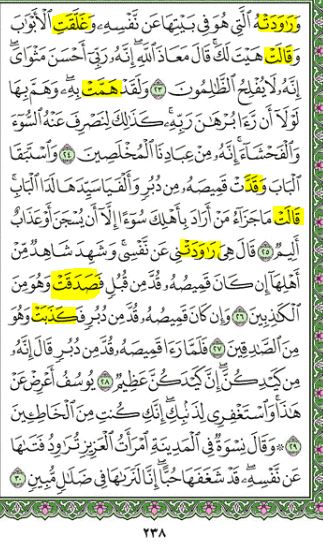
السلام عليكم و رحمة الله,
We’ve looked at the signs of the ism and even taken a slight detour and looked at some special حرف’s that come with them. Now we’re going to continue on and look at some signs that tell us that a word is a fi’l (verb). If you remember from here, a فِعْل (fi’l) is something that happens in time. From the Ajurroomiyyah are 4 signs that tell us that we’re looking at a fi’l:
وَالْفِعْلُ يُعْرَفُ بِقَدْ وَالسِّينِ وَسَوْفَ وَتَاءِ التَّأنِيْثِ السَّاكِنَةِ
The fi’l is recognized using:
- قَدْ
- The letter س
- سَوفَ
- The silent ت used for the feminine
ْقَد
When we covered the fi’l in Verbs, we mentioned that a fi’l can be:
- past (ماض)
- present (مُضارِع)
- command (أمر)
The particle قد comes before the past tense verb (ماض) and the present tense (مُضارع). It doesn’t come with the command (أمر).
قَد and the ماض (past tense fi’l)
When قد comes before a past tense verb (ماض), it can give two meanings:
- verification that something has happened
- something’s about to happen
Some examples of using قد to confirm that something has happened:
- قَد أفلَحَ المُؤمِنُونَ (Certainly, the believers have succeeded) [Quran 23:1]
- لَقَد رَضِيَ اللهُ عَنِ المُؤمِنِين (Certainly, Allah has, in fact, become pleased with the believers) [ََQuran 48:18]
- قَدْ حَضَرَ مُحَمدٌ (Muhammad has, in fact, arrived)
- قَد سافَرَ خالِدٌ (Certainly, Khalid has gone traveling)
Some examples of using قد to show that something’s about to happen:
- قد قامَتِ الصَلاة (The prayer is about to be established)
- قَدْ غَرَبَتِ الشَمسُ (The sun is about to set)
- A nice point is that if you were to say this after sunset, then you’d be using قَدْ to confirm that it has set instead of that it’s about to set. The meaning would change from “The sun is about to set” to “The sun has, in fact, set”.
قَدْ and the مُضارِع (present tense fi’l)
Just as with the past tense, when قد comes before a present tense fi’l, it can give two meanings:
- That something happens rarely
- That something happens often
Some examples of when قَد is used to show that something happens rarely:
- قَد يَصدُقُ الكَذُوبُ (Rarely will a liar be truthful) [يَصْدُقٌ = to be truthful, كَذُوب = liar]
- قد يَجُودُ البَخِيلُ (Rarely will a miser be generous) [َيَجُودُ = to be generous, بَخِيل = miser]
- قد يَنجَحُ البَلِيدُ (Rarely will a stupid person succeed) [يَنجَحُ = to succeed, بَلِيد = stupid]
Some examples using قَدْ to show that something happens often:
- قد يَنالُ المُجتَهِدُ بُغيَتَهُ (Often does one who exerts effort attain his wish) [مُجْتَهِد = striver, بُغْيَة = wish/desire]
- قد يَفعَلُ التَقيُّ الخَيرَ (Often does a pious one do good)
- قد يُدرِكُ المُتأنّي بَعضَ حاجَتِهِ و قَد يَكُونُ مَعَ المُستعْجِلُ الزَلَلُ (Often does one who practices deliberation reach some of his need, and often are mistakes with the one who hurries) [يُدْرِكُ = to catch, مُتَأَنٍّ = one who acts deliberately, حاجَة = need, مُسْتَعْجِل = one who hurries, زَلَل = mistake]
The particles َس and سَوْفَ
They only come with the مضارع alone and they mean the future, except that the letter س is less into the future than سَوفَ.
Some examples of س:
- سَيَقُولُ السُفَهاءُ مِن الناسِ (The fools of mankind will say…) [Quran 2:142]
- سَيَقُولُ لَكَ المُخَلَّفُون (The ones left behind will say to you) [Quran 48:11]
In each of these examples, we see the word يَقُوْلُ (“he says”) has the letter س before it. Put them together it becomes سَيَقُوْلُ (“he will say”)
Some examples of سَوْفَ:
- و لَسَوفَ يُعطِيكَ رَبُّكَ فَتَرْضى (“And your Master will give you so that you will be satisfied”) [Quran 93:5]
- سَوفَ نُصْلِيهِمْ نارًا (“We will burn them with fire”) [Quran 4:56]
- سَوفَ يُؤتِيهِمْ أجُورَهُم (“He will give them their wages”) [Quran 4:152]
The silent ت used for the feminine
What we mean by the “silent ت ” is a ت that has no vowel on it (i.e. تْ). It comes at the end of some past tense verbs (ماض), and it’s used to show that the ism attached to this action is feminine.
This ism can be the doer, such as in قالَتْ عائشَةُ أمُّ المُؤمِنين (“Aishah, the mother of the believers, said…”). The word قال means “he said”. To feminize it we add a silent ت to make it قالَتْ.
When the verb is passive (i.e. the doer is not mentioned) the ism can also be a substitute for a doer, such as: فُرِشَتْ دارُنا بِالبُسُطِ (“Our home was furnished with carpets”). The word فُرِشَ means “it was furnished”. Because the word used for home (دار) is feminine, we feminize the verb with a silent ت and it becomes فُرِشتْ.
NOTE: All nouns in Arabic are either masculine or feminine, even non-living objects.
Now, we come to the point of silent letters coming together. In English we can have multiple consonants come together and we can blend them all with one vowel, like the word “street”. We see s-t-r all coming before we even see the vowel “e”.
Arabic doesn’t work like that. You can’t have more than one letter in a row without a vowel. That’s why if you ask an Arab who still learning English to pronounce “street”, it might out come as “istareet”, because the concept of multiple silent letters in a row or even starting with a silent letter is foreign to his tongue.
To get around the problem of consecutive silent letters, we’d vowelize the تْ if the letter immediately after it is silent too. For example:
- قالَتِ اخرُج عَلَيهِنَّ (“She said: ‘Come forth to them’”) [Quran 12:31]
- It was originally قالَتْ اخْرُجْ عَلَيهِنَّ but because the خ in ْاخْرُج is silent, we put a kasrah at the end of the word to make it قالتِ
- إذ قالَتِ امرَأَةُ فِرعَونَ (“When the wife of Pharaoh said”) [Quran 28:9]
- It was originally, قالتْ امْرَأةُ, but because the م in امْرَأة is silent, we put a kasrah at the end of قالتْ to make it قالتِ
Here’s a page from the Quran (12:23-30) that has words with the silent ت’s highlighted. There’s even one in the first line where the ت has a kasrah on it because of the letter after it being silent (Can you find it?). All of these words are fi’l‘s because تْ points that out to us.

From what we’ve noted, the signs of the fi’l can be divided up based on what kind of fi’l they come with:
- Only with the ماض (past tense): The silent ت
- Only with the مُضارِع (present tense): The particles س and سَوفَ
- Either the ماض or the مُضارع: The particle قَدْ
Note: Some additional signs used to spot an أمر (command) are that it can take a ن for emphasis and that it can take a ي when the command is addressed to a feminine object. These can be discussed in further detail when we cover morphology (how the whole form of the word changes). Remember that Arabic grammar is a study of how the endings of words change in different situations.
That’s it for now. Next is how to tell if something’s a حرف, and then on to one of the defining features of the Arabic language: changes in the ending of words.
Questions
- What are the signs of a fi’l?
- How many kinds are there, with respect to the kind of fi’l they come with?
- What is the sign that only comes with the past tense (ماض)?
- How many only come with the present tense verb (مُضارع)?
- What is the sign that is common to both the past and the present tense verbs?
- What are the meanings that قد can give?
- What does the silent تْ tell us?
- What meaning do س and سَوف give?
- What’s the difference between them?
- Give two examples of using قد to confirm an event.
- Give two examples of using قد to mean that an event is about to happen?
- Give an example where قد is used to mean that something rarely happens
- Give an example where it’s used to mean that something happens often.
- Give a sentence using قد where it could mean that either something really happened, or that it’s about to happen, depending on when it’s said.
Exercises
Don’t be lazy, do these!
In the following expressions, find the ism‘s and fi’l‘s along with the sign that tells you that it’s an ism or fi’l. If you need a refresher on the signs of the ism, you can go here.
- إن تُبْدُوا خَيرًا أو تُخفُوهُ أو تَعْفُوا عَنْ سُوءٍ فَإن اللهَ كانَ عَفُوًا قَدِيرًا [Quran 4:149]
- ٌإنّ الصَفا والمَروَةََ مِنْ شَعائرِ اللهِ فَمَنْ حَجَّ البيتَ أو اعْتَمَرَ فَلا جُناحَ عَلَيْهِ أن يَطَّوَّفَ بِهِما ومَن تَطَوََعَ خَيْرًا فإنَّ اللهَ شاكرٌ عَلِيم [Quran 2:158]
- سَتَكُونُ فِتَنٌ القاعِدُ فِيها خَيْرٌ مِن القائمِ, و القائمُ فِيْها خَيرٌ مِن الماشِيْ, و الماشي فيَيها خَيرٌ مِن الساعِيْ, مَنْ تَشَرَّفَ لَها تَسْتَشْرِفُهُ, و مَن وَجَدَ فِيها مَلْجأً أو مَعاذًا فَلْيَعُذْ بِهِ – “There will be afflictions during which a sitting person will be better than a standing one, and the standing one will be better than a walking one, and the walking one will be better than a running one, and whoever will expose himself to these afflictions, they will destroy him. So whoever can find a place of protection or refuge from them, should take shelter in it.” [Sahih al-Bukhari]
Until next time, السلام عليكم و رحمة الله و بركاته
Like this post? Simply enter your e-mail and click “Yes, include me!” for updates
MashaALLAAH…. Alhamdulillaah!
Wow!! Thank you so much. May Allah bless the person who wrote this.
Allah knows best, however as for me this site aids me to comprehend little easier, mashaa Allah, may Allah continue to aid us all, ameen
Usthaz, I have a question.
Would you please clarify it.
In فمن حج البيت-
من is Ism .
But, how do we know if it’s ism?
Jazakumullahu khairaa.